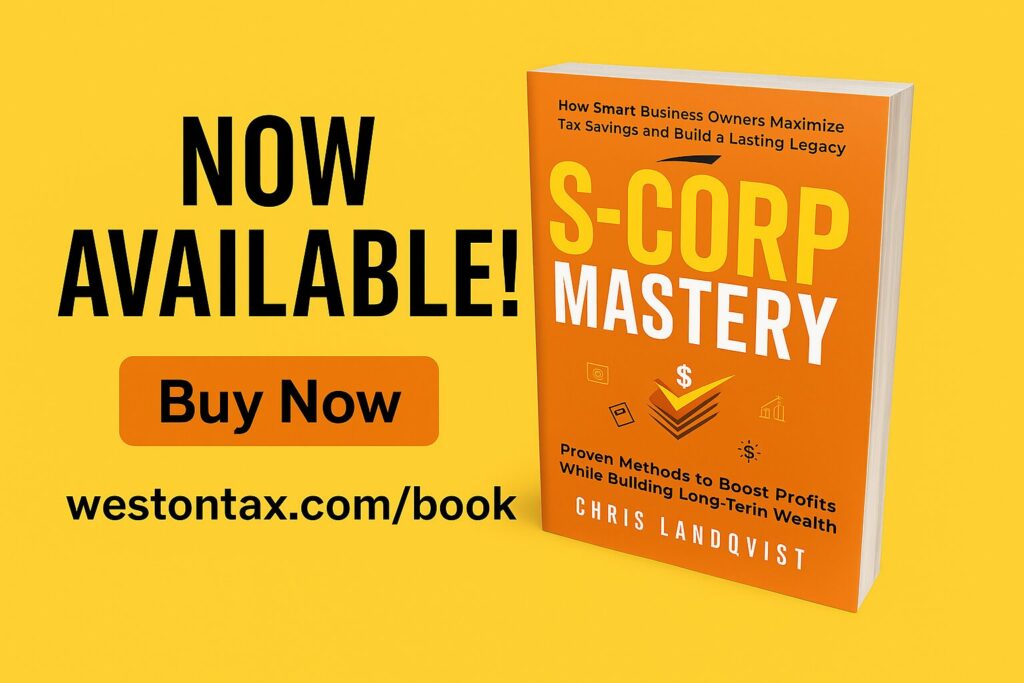If you spend even a few minutes on TikTok, YouTube, or Instagram, you’ll see them — smiling faces, flashy cars, and bold captions promising “secret tax loopholes the IRS doesn’t want you to know about.”
They call themselves “tax gurus.”
In today’s world, we consume more content in a single day than our grandparents did in a month. A quick scroll through social media delivers advice on everything — fitness, investing, relationships, and yes, even taxes. The problem is that most people never stop to verify what they’re watching. In most areas of life, that might just mean wasted time or a bad purchase. But in the tax world, it’s far more dangerous.
Because here’s the truth: when you sign your tax return, you are the one legally responsible for what’s on it. Not the guru with a million followers. Nor your accountant. Not even the friend who swore, “everyone’s doing it.” If you take bad advice and it lands you in trouble, the IRS isn’t knocking on their door — they’re knocking on yours.
The problem? Most of them have never passed an IRS exam, never taken a ethics course, and in many cases, aren’t even licensed to give tax advice. Yet thousands of business owners and individuals are lured in by the promise of quick refunds and easy credits.
Recently, the IRS announced over $162 million in penalties tied directly to fraudulent tax credit claims that spread through social media channels. If you wan to read it directly from the source, you can find the article HERE.
That’s not pocket change. It’s a sobering reminder that while the IRS may move slowly, it never forgets. I’ve written a previous article on SCAMS… the link to that article can be accessed HERE.
Let’s pull back the curtain on why following a “guru” online is one of the most expensive mistakes you can make as a business owner — and why real tax strategy will always come from professionals who have skin in the game.
The IRS Moves Slowly, But Strikes Hard
It’s tempting to think you can copy what a neighbor… or worse, a social media “guru,” claimed on their taxes and skate by unnoticed. These voices love to push shiny shortcuts: calling yourself a real estate professional when you don’t qualify, disguising family vacations as “board of director retreats,” or writing off a brand new Ferrari as if it’s strictly a business tool.
Or worse… I have my business name on a decal of the car, use it in my videos, so this is totally legit. C’mon people.
Let me give you a free piece of advice here. On the house. No charge — if examined, you and your current tax strategist, will have a really hard time substantiating these deductions with the IRS.
The trend shifts over time, but the pitch is always the same: bigger write-offs, less tax, little chance of getting caught. Right now, one of the hottest schemes is setting up a so-called “religious” (tax-exempt) corporation to shield income.
The IRS sees these patterns, and when the promise looks too good to be true — it usually is.
And let’s be honest. Some of the advice floating around online isn’t completely wrong. It just doesn’t always apply to your situation, or the “guru” leaves out the fine print that makes all the difference. So yes, there can be a sliver of truth in what you hear. But let’s not sugarcoat it: a lot of what’s being pushed is flat-out tax fraud.
Personally, I have no desire to test my luck in federal prison — or try to make orange jumpsuits the new black.
Here’s the thing: the IRS doesn’t chase trends in real time. They build cases, watch the data, and then crack down — hard. When they finally show up, it’s not with a friendly letter. It’s with penalties that can reach $5,000 per frivolous return on top of denied refunds, interest, and even the risk of criminal investigation for willful fraud.
Think of it like speeding past a cop car you didn’t see. You might feel like you “won” in the moment, but weeks later that ticket shows up in the mail. The IRS plays the long game, and they always win.
The Hidden Cost of Following Bad Advice
One of the most dangerous misconceptions out there is that if something goes wrong, you can point to the “guru” and say, “Well, they told me to do it.” That’s not how tax law works. The taxpayer — the person signing the return — is solely responsible. Not the YouTuber with 200,000 followers. Not the TikTok personality promising “tax-free wealth.”
You are the one that’s responsible. Period. End of story.
The IRS doesn’t care if your advice came from a viral video. If you file a frivolous return, you’re the one on the hook. This is why working with untrained, unlicensed “experts” is like building your business on quicksand. It may hold you up for a while, but eventually, you’ll sink.
Real Strategy vs. Social Media Myths
Let’s look at a simple example. A popular social media myth claims you can buy luxury items (like a G-Wagon or Rolex) and “write them off” 100% as business expenses. Sounds exciting, right? But here’s reality: yes, Section 179 and bonus depreciation allow for accelerated deductions, but the asset must be ordinary and necessary for your trade or business.
If you’re a contractor buying a heavy-duty truck to transport tools? That makes sense. If you’re a marketing consultant claiming a $15,000 watch is a “business expense”? That won’t survive an audit. And the IRS doesn’t just take back the deduction. They hit you with penalties, interest, and a giant red flag on future returns.
The gurus love selling loopholes. Professionals focus on strategy. A real tax plan takes your business model, entity structure, income streams, and long-term goals into account. It’s not about chasing every “hack” — it’s about building a legal, sustainable foundation that keeps your money safe year after year.
Why Working With a Professional Pays Off
It’s natural to wonder: is hiring a professional really worth it? After all, gurus often market themselves as “free” or “cheap.” But when you look at the ROI, there’s no comparison.
A licensed strategist can save you tens of thousands in taxes through legitimate strategies:
- Structuring your business as an S-Corp to reduce self-employment tax.
- Leveraging retirement plans like Solo 401(k)s or Defined Benefit Plans to create massive deductions.
- Using real estate strategies such as cost segregation studies or self-rental structures that stand up to IRS scrutiny.
Unlike the gurus, I sign my name on the strategies that are selected for your specific situation, plan. and goals. It is something I have to stand behind once I make the recommendation. The plans I build are designed to hold up in audits, courtrooms, and (more importantly) over the long arc of your business journey. Not just to flex on YouTube to gain new followers or get 1,000,000 weekly views.
That’s why I often tell my clients: working with a strategist has the best ROI of anything you’ll ever buy for your business. More than software. More than marketing. Because keeping money you’ve already earned is always more profitable than chasing new revenue.
Protecting Yourself in the Age of Social Media Advice
Here’s the bottom line: social media can be a great place to learn about general concepts. But when it comes to your tax return, TikTok isn’t a strategy — it’s a liability.
The IRS has already made examples of taxpayers who trusted the wrong people, and the trend is only growing. Don’t let your business or family wealth become the next headline.
This is why education matters. It’s why working with a strategist matters. And it’s why the smartest entrepreneurs I know never gamble with tax law based on what someone said in a 60-second video.
If you’re ready to explore strategies that are legal, powerful, and tailored to your unique situation, I’d love to connect. Let’s talk about how to structure your business so you can keep more of what you earn — and do it without fear of IRS letters or penalties.
Welcome to the New Age of Accounting. Let’s begin.

Chris is the Managing Partner at Weston Tax Associates, a best-selling author, and a renowned tax strategist. With over 20 years of expertise in tax and corporate finance, he simplifies complex tax concepts into actionable strategies that drive business growth. Originally from Sweden, he now lives in Florida with his wife and two sons.











